Projection markovienne de processus stochastiques
Projection markovienne de processus stochastiques
Projection markovienne de processus stochastiques
You also want an ePaper? Increase the reach of your titles
YUMPU automatically turns print PDFs into web optimized ePapers that Google loves.
tel-00766235, version 1 - 17 Dec 2012<br />
mo<strong>de</strong>l illustrates how the forward equation projects a high dimensional pricing<br />
problem into a one-dimensional state equation, generalizing the forward<br />
PIDE studied by Avellaneda et al. [5] for the diffusion case.<br />
1.2.3 Chapter 4 : short-time asymptotics for semimartingales<br />
The result of chapters 2 and 3 reduce the computation of expectations of the<br />
type<br />
E[f(ξt)|Ft0] (1.21)<br />
to the computation of similar quantities when ξ is replaced by an appropriately<br />
chosen Markov process X, the Markovian projection of ξ. Chapter 4<br />
usessimilari<strong>de</strong>astocomputeanalyticallytheasymptotics ofsuchexpressions<br />
as t → t0. Whereas for Markov process various well-known tools –partial differential<br />
equations, Monte Carlo simulation, semigroup methods– are availableforthecomputationandapproximationofconditionalexpectations,<br />
such<br />
tools do not carry over to the more general setting of semimartingales. Even<br />
in the Markov case, if the state space is high dimensional exact computations<br />
may be computationally prohibitive and there has been a lot of interest in<br />
obtaining approximations of (1.21) as t → t0. Knowledge of such short-time<br />
asymptotics is very useful not only for computation of conditional expectations<br />
but also for the estimation and calibrationof such mo<strong>de</strong>ls. Accordingly,<br />
short-time asymptotics for (1.21) (which, in the Markov case, amounts to<br />
studying transition <strong>de</strong>nsities of the process ξ) has been previously studied<br />
for diffusion mo<strong>de</strong>ls [17, 18, 41], Lévy processes [60, 70, 83, 9, 44, 43, 91],<br />
Markov jump-diffusion mo<strong>de</strong>ls [3, 13] and one-dimensional martingales [78],<br />
using a variety of techniques. The proofs of these results in the case of Lévy<br />
processes makes heavy use of the in<strong>de</strong>pen<strong>de</strong>nce of increments; proofs in other<br />
case rely on the Markov property, estimates for heat kernels for second-or<strong>de</strong>r<br />
differential operators or Malliavin calculus. What is striking, however, is the<br />
similarity of the results obtained in these different settings.<br />
We reconsi<strong>de</strong>r here the short-time asymptotics of conditional expectations<br />
in a more general framework which contains existing mo<strong>de</strong>ls but allows<br />
to go beyond the Markovian setting and to incorporate path-<strong>de</strong>pen<strong>de</strong>nt features.<br />
Such a framework is provi<strong>de</strong>d by the class of Itô semimartingales,<br />
which contains all the examples cited above but allows the use the tools of<br />
stochastic analysis. An Itô semimartingale on a filtered probability space<br />
18




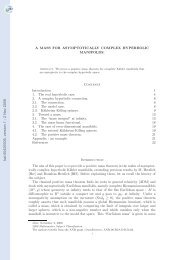


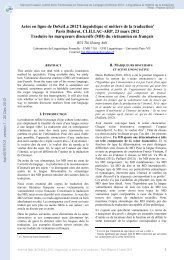
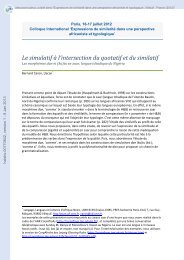
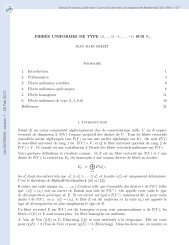
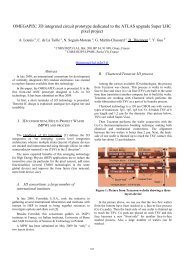
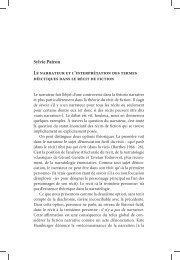
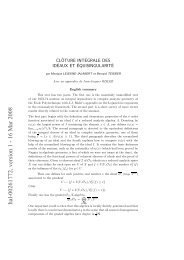
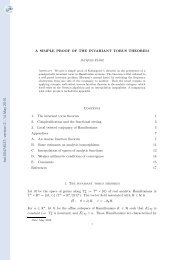
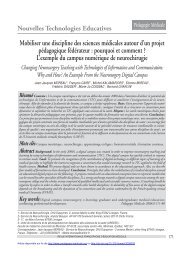
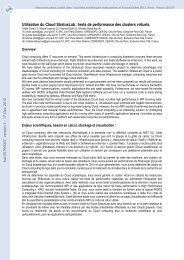
![[tel-00433556, v1] Relation entre Stress Oxydant et Homéostasie ...](https://img.yumpu.com/19233319/1/184x260/tel-00433556-v1-relation-entre-stress-oxydant-et-homeostasie-.jpg?quality=85)